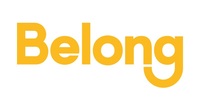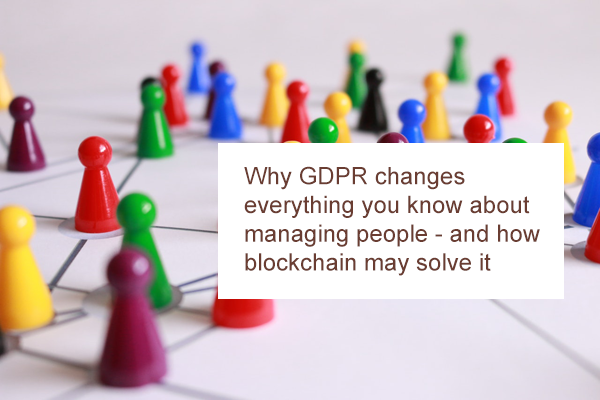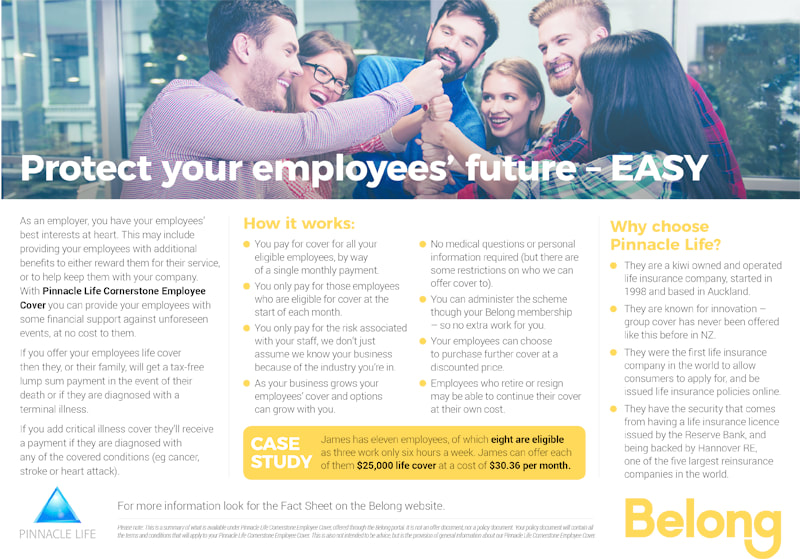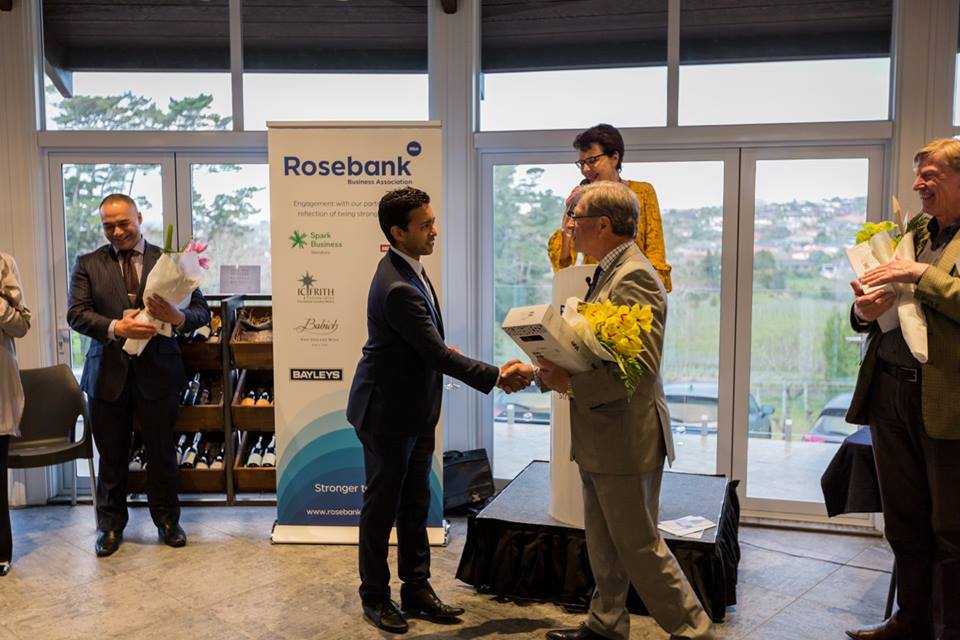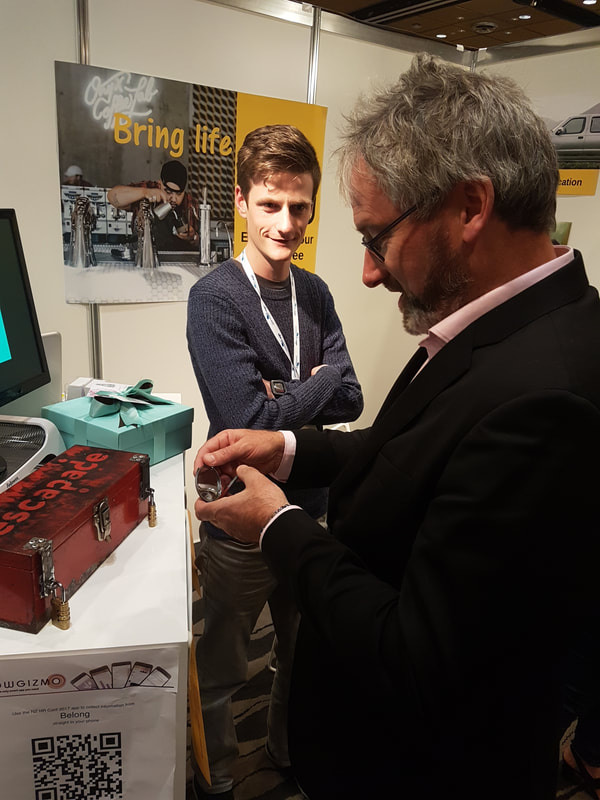Why an EU data law changes everything about managing people – and how blockchain may solve it5/7/2018
What is this European Union law? It sounds so innocent – the General Data Protection Regulation, or GDPR. It goes into effect on May 25, 2018. The basic intent of this law is to put control of the use of personal data into the hands of the person. In the words of the EU: “Regulation (EU) 2016/679 on the protection of natural persons with regard to the processing of personal data and on the free movement of such data. The regulation is an essential step to strengthen citizens' fundamental rights in the digital age and facilitate business by simplifying rules for companies in the digital single market. A single law will also do away with the current fragmentation and costly administrative burdens”. The law is the EU response to privacy and personal data misuse concerns that have become more prevalent in recent years. What’s the guts of it? The main features of the new law are: Consent The GDPR requires businesses and organisations to get specific consent for the use of someone’s personal data, and simple methods to someone to revoke their consent. Consent agreements need to be in simple to understand language. Right to Access People have the right to request access to the person information someone else holds on them. The holder must supply this information without charge. Severe Penalties Organisations that fail to comply with GDPR can face fines of up to 4% of their annual turnover. Here’s a really nice short summary of what GDPR is about and what it means. What is happening? As the day of reckoning nears, predictable things are happening. Lawyers and IT consultants are scaremongering and cashing in. Some are calling this the biggest consultancy racket since Y2K. But something else very interesting and perhaps a little less predictable is happening. Some companies are taking the decision to completely delete all personal information that they hold – on purpose. They are sizing up the risks that they face in holding and managing that data, and are deciding that it is better for their business not to hold that data at all. It is starting with the predictable areas like newsletter mailing lists, but I believe that this trend will quickly spread to all personal information that an organisation holds – including information about its own employees. What are the implications of this? The implications of this trend are massive and will quickly ripple beyond the EU. Businesses may no longer be able to rely on having a full database of information on their own people under their full and unfettered control. It may not happen in weeks or months, but you can say with some certainty that this day is coming. Those that think that this is a ‘European thing’ that won’t affect them will quickly find that they are. Data management practices in software that they use every day will almost certainly change to accommodate the needs of customers in the EU – so they will wind up using those practices as well. Businesses that have worldwide operations will not want to have an ‘EU way’ of managing data and a ‘rest of the world’ way – they will gravitate to a practice they can use everywhere. HR and line managers may not be happy about this, but their corporate risk managers and Boards will increasingly not want to expose their companies to the business risks of holding any personal information. They will be desperate to outsource that risk to someone else. So we are all going to need to learn new ways of managing people. We may not be able to rely on sending surveys and performance reviews to ‘everyone in our database’ for too much longer. How can you outsource this risk? How do you outsource the risk of holding personal information about people, when you need that information to do business? Who can you outsource that risk to? I believe that the only way to outsource that risk it to put control of personal information completely in the hands of the person themselves. But is that feasible? It is ironic that a problem that was largely created by misuse of technology may have the potential to be solved by – newer technology. Personal control of personal information may be the ‘killer application’ for blockchain technology. Why blockchain? A blockchain is basically a distributed secure database. Because there is no central pool of data, it offers the best potential to ‘outsource risk’ of holding a pool of personal data. The personal data could be held by each person, and the person gives permission for others to access it. There is no central database to ‘hack’ – so there would be less data management risk for a business that needs to use that data. This technology could elegantly solve the problem of managing access to personal information, by putting the individual fully in charge of access to their information. Once access is granted, the company (or other authorised user of the person’s data) could then use the blockchain database much more like a traditional centralised database. What does it all mean? It means that the power in the personal data relationship will swing more and more towards the individual, and further away from their employers or other businesses they deal with. Businesses may find that they have to pay their employees more in order to access their personal information. At a minimum the days of ‘implied permission’ are going away fast, so businesses will need to build access to personal information more explicitly into their hiring and on-boarding practices. They will also need to build practices for situations when employees want to revoke their permission for their employers to access their personal information. It will be chaotic and inconsistent for a while – these changes will not happen overnight, and technology alone will not solve everything. But what good technology can support is making the cost of establishing trust between parties as low as possible. Of all technologies out there right now, blockchain appears to be the strongest for that purpose. Summary At Belong our goal is to make people’s lives better through unlocking the potential and value of their passions. We also believe in the potential of blockchain. We are building it into our products, and we want to help businesses and individuals solve these looming trust problems. We believe that everyone has a range of skills that can be grown. We also believe everyone has the ability to create value for others. We believe that people should be fairly compensated for creating value for others. Our products and protocols let individuals, organisations and businesses measure and reward people’s ability to create value for others. What motivates us?What does it really take to keep a good person? Just offering a higher salary probably won’t do it. The best way to retain good people is to recognise what truly motivates them, and build a workplace that fosters and rewards that motivation. Study after study tells us that the cost of replacing a good person is higher than what it would cost to keep them. Yet we have been trained by centuries of common practice to think that salary and wage compensation is the way to attract and retain good people. “If you want the best people, pay them what they are worth. If you pay peanuts, you get monkeys” are among a range of tired clichés on the subject. The research tells us that money is not the only answer to keeping good people. It is far better to dive deeper into what actually motivates us. I recently read an excellent article by Paula Davis-Laack. She argues that autonomy, connection to others, and competence or mastery of a skill (the elements of Self-Determination Theory) are the keys to a happy and motivated workforce. “Autonomy, connection to others and competence (or mastery) are the three components of Self-Determination Theory, a theory of motivation with decades of research supporting its efficacy. According to Self-Determination Theory, all human beings require regular experiences of autonomy, competence, and connection with others, and when we get these things in a high enough dose, it leads to thriving and positive motivation.” These are quite compelling arguments. If you give a person the autonomy to make decisions about their work by setting goals rather than prescribing tasks, they are better able to decide priorities and get the best results. The amount of autonomy in each job varies of course – but empowering the individual to understand the result needed and to make the right decisions about how to achieve it are just as important on an assembly line as they are on a software project. Perhaps the most famous example of this is the Toyota Production System (which gave the world the concept of lean manufacturing and continuous quality improvement). On the Toyota production line, every worker is empowered to stop the production line if they see a problem. Connection to others is an essential motivator – we have all been in workplaces where great results are delivered by small teams that really ‘click’ with each other, making the team greater than the sum of their parts. These are situations where people really appreciate the value that their teammates create for them (‘I couldn’t have done this without you!’). Mentoring and learning also happens here – people seek out advice and re-assurance from those whose views they value. And simple human emotion also happens here – a laugh when you need it, or a trusted ear when you need to vent. Without healthy connection to others, workplace motivation tends to be low. Competence and mastery of skills is something that every human being seeks. Whether it is learning to ride a surfboard, compiling the monthly report, or running an air traffic control system, our personal satisfaction increases as we grow more confident in our skills, and our skills are recognised by others. Skill recognition is very important to self-worth. Recognition can range from the formal (a certification from a professional body or institution), to semi-formal (acknowledgement from a customer when delivering a piece of work) to informal (a complement from a colleague). In combination with work produced, these skill affirmations build a picture of self-worth in the person (“I’m good at this!” versus “I really don’t know how to do this”). It also tells a story of the ability of the person to create value for others. Applying it in the workplaceSo what kinds of things can you do to foster improved personal motivation in your workplace? Recognise skill development Be conscious in your workplace to recognise, reward and celebrate skill development in your people. Larger workplaces will often put in place expensive training programmes oriented around a formal qualification (for example, employees complete an internal training course, receive a certificate, and have a party thrown in their honour), but sometimes forget about the enormous power of the semi-formal and informal recognition of skills available from customers and peers. To an individual, these less formal affirmations of their skills are often more motivating than the formal affirmations – because they come directly from other people. An excellent workplace will foster a blend of ways to detect skill development (formal, semi-formal, informal) and develop ways to relate skill improvement to compensation and work assignments. Build bridges between people It can be hard getting to know new people in the workplace, especially if you work in different locations. Savvy workplaces actively create ways for their people to get to know each other better. The company picnic or other social gatherings are a tried and true method. Sharing people’s hobbies and achievements outside the workplace is another great way to break down barriers and preconceptions about people. When on-boarding new employees, making sure the new hire is aware of all they ways they can meet with and learn about their new workmates is really important. Chances are they have researched their colleagues already! Creating methods and incentives for peers to recognise their colleagues is another really effective way to build connections between people. Something as small as a mention in the company newsletter for a job well done can be a very powerful motivator, as long as the team perceive these shout-outs to be genuine. Safely empower the front line Autonomy is an important motivator, but doing it safely is essential to an individual’s motivation and satisfaction. If someone is brand new to an important task and unsure how to do it properly, the worst thing in the world is to tell that person ‘you’re on your own, we trust you to figure it out’. Far better in that situation to pair that person with a trainer or mentor, who can assist and suggest ways to do things and be a sounding board until the person gains more mastery of the task. When the person does gain and demonstrate task mastery, then increase the autonomy they have relating to that task. Recognising the evolution of skill and the related ability to work autonomously is one of the key skills of management. SummaryAt Belong our goal is to make people’s lives better through unlocking the potential and value of their passions.
We believe that everyone has a range of skills that can be grown. We also believe everyone has the ability to create value for others. We believe that people should be fairly compensated for creating value for others. Our products and protocols let individuals, organisations and businesses measure and reward people’s ability to create value for others. Here is a link to our March Newsletter.. We join the MYOB tour, welcome new customers, reflect on International Women's Day and talk a little Olympic Curling.
Group insurance designed for Kiwi businesses
Did you know that only 1 percent of New Zealand businesses have more than 100 employees? We wanted to build a group life insurance product for the other 99 percent. In a world first, Belong and Pinnacle Life have joined forces to deliver a new group insurance product designed especially for the needs of Kiwi businesses. That product is Cornerstone Employee Cover - available exclusively via Belong. If you have between 5 and 9 employees, you've never been able to buy a group life insurance product like this in New Zealand. If you have more employees, you've never had a value bundle like this - a fully bundled, ready to roll out benefits platform and group life insurance package. Group insurers in New Zealand have focused on the needs of the '1 percent' - because bigger customers are more profitable for the insurer. We thought that was wrong. We know that all Kiwi businesses care about the welfare of their people, not just the big corporates. With just 5 or more employees, you can buy Cornerstone Employee Cover for your business, and get guaranteed insurance regardless of health (some conditions do apply). Belong and Cornerstone Employee Cover work perfectly together. We've designed the package with Kiwi businesses in mind - because we're Kiwi businesses ourselves. So when you buy Belong with Cornerstone Employee cover, you get a fully-integrated benefits and group life insurance package that you can roll out to your team straight away. Your people can see their insurance information, your other benefits that you can add into Belong, plus even more benefits from our other service providers. And here's even better news. When you buy Cornerstone Employee Cover group insurance, the Belong benefits are included at no additional charge. What is group life insurance, and why is it better for my people than buying it themselves? Group life insurance is an insurance policy that the company buys that provides coverage for all of its eligible employees. The major benefit for the employee (other than the boss is paying for it!) is that group policies don't require employees to undergo an individual examination in order to be accepted for cover. If the employee was applying directly to an insurer for a life policy for themselves, the insurer would likely require medical information and assess the risk personally. Monthly billing - better for cash flow We've also built innovative features with the smaller business in mind. Most traditional group insurance schemes bill you annually. Not only is this really tough for cash flow, it breeds inaccuracy as people come and go over the year. With Belong and Cornerstone Employee Cover, it is easy monthly payments. As you add people or as people leave your business, your billing adjusts every month. And there is no minimum time commitment - you just go month by month. It is the most flexible group insurance arrangement offered by anyone in the New Zealand market. You get support and expertise We don't skimp on the features. Cornerstone Employee Cover is underwritten by Pinnacle Life and backed by Hannover RE - one of the five largest reinsurance companies in the world. Every Belong Cornerstone Employee Cover customer gets their own Belong Affiliated Financial Adviser. Your adviser not only gets your Cornerstone Employee Cover in place and explains how it all works - they are also available to you and your staff as an expert resource to ask about financial advice and planning. It's a fantastic additional benefit offered to you at no additional charge. Belong's network of Affiliated Financial Advisers are located throughout New Zealand. Buy it today Contact us to get Belong with Cornerstone Employee Cover, and protect your employees' future today. It's easy! We are delighted to announce a partnership with the Rosebank Business Association.
The RBA became a Business Improvement District (BID) in July 2005. The RBA is considered by Auckland Council to be one of the more successful commercial/industrial BIDs in Auckland. Today the RBA represents more than 520 businesses and 8,000 employees on the Rosebank Peninsula. Our partnership entitles RBA businesses to use Belong as part of their RBA membership. They can create special promotional offers that reach other RBA members and their employees - a great boost for local business. Through the partnership, businesses also get the full range of Belong features. That includes an employee benefit platform to communicate their own staff benefits and add other offers from Belong service providers, as well as a sales promotion channel to offer products and services to other Belong customers and their employees. Melisa Shore, Belong's Head of Sales, says that RBA members are enthusiastically jumping on board. "Rosebank business owners instantly get the benefit of using Belong. It gives them great new benefits for their staff, they can promote their business to their neighbours, and they can also promote their business to other Belong customers across New Zealand. Having access to Belong included in their RBA membership means they are getting even more value from their RBA membership. It's a classic win-win-win-win - great for the business, great for their employees, great for the RBA and promoting local business, and great for Belong". If your business association or industry group would like to know more about adding value to your membership proposition by partnering with Belong, please contact Melisa at melisa@belong.nz We're one year old today!
Here's a newsletter we sent out today that summarises our journey so far. It's been an awesome ride and we are just getting started. We had an excellent time exhibiting at the NZ HR Expo 2017 last week..even Jeremy Corbett wanted to try and win one of our great prizes!
But we are stoked to announce the actual prize winners: Kelsey Burmester won a beautiful gift hamper from Love To Give Quentin Daniels won a free float voucher from Float Culture Wayne Turner also won a free float voucher from Float Culture Lisa McLean won a team escape session from Escapade Kieran Pabla won a free consulting session with VitalSure Ltd Congratulations to all of the winners, thank you to all of our awesome Belong Service Providers, and we hope to see you all again very soon! |
AuthorHans Frauenlob and a range of special guests Archives
May 2018
Categories
All
|
